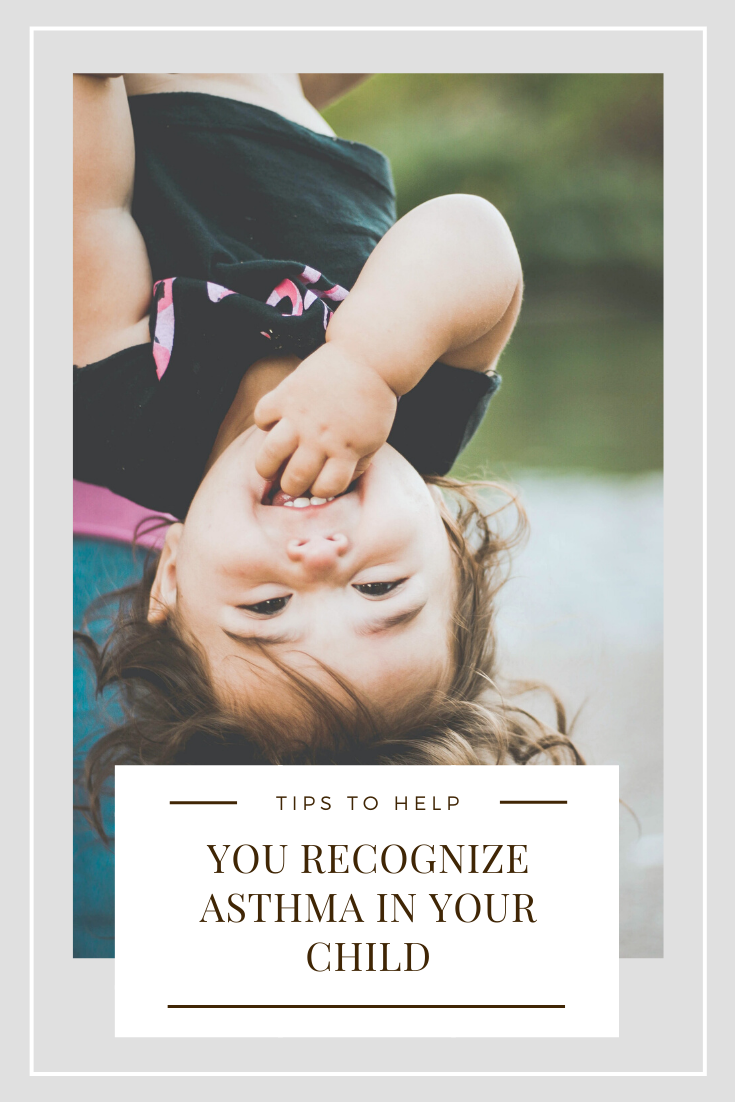Recognizing the Signs of Asthma in Your Child

Recognizing the Signs of Asthma in Your Child
Asthma is a respiratory condition characterized by recurrent bouts of cough and breathing difficulties.
It is always best to seek the advice of your doctor if you have any questions.
It can also cause a whistling sound caused by the narrowing of the respiratory tract.
Although it usually starts in childhood, asthma can develop at any age. Asthma can have a significant impact on the quality of life. Most especially if the symptoms are not controlled.
It is, therefore, important to be able to identify the symptoms as early as possible, so that the condition can be brought under control.
Read on if you need some tips for recognizing the signs of asthma in your child.
What Causes Asthma?
Asthma is caused by a reversible narrowing of the breathing tubes. It is precipitated by a variety of stimuli that lead to the contraction of muscles in the tubes and temporary reduction in their size.
Occasionally, the narrowing of the breathing tubes can occur randomly. Though it is often triggered by allergens such as pollen, dust mites, smoke, infections like the common cold, or even exercise.
Most children outgrow the condition in adolescence or experience less severe attacks when they become adults.
However, for some, asthma is a long-term condition, especially if it develops when they are already adults.
The good news is that the symptoms can be controlled by treatment. Anyone diagnosed with asthma should identify and avoid triggers.
This way, symptoms can be kept under control.
Recognizing Childhood Asthma
It can be a challenge for many parents to recognize asthma in their children. Some children contract coughs due to upper respiratory tract infections from friends and playmates.
These are usually viral infections which are self-limiting and would go away without treatment.
Many parents confuse asthma with this condition, and so they do not feel it is necessary to bring the symptoms to the attention of their doctor.
There are distinct symptoms of childhood asthma though. Parents should be on the look-out for these tell-tale symptoms and bring them to the attention of the doctor.
Asthma Symptoms to Look Out For
A child may develop a cough that is persistent and keeps coming back. The cough is more prominent at night or in the early hours of the morning.
This should raise a suspicion of asthma. Especially if the cough is accompanied by a whistling sound when the child breathes.
Some children get tired easily after a little exercise and may go unusually quiet afterward.
Those who are old enough may describe the condition as tummy ache due to the tightness they experience in their chest.
Parents should also look out for any signs that the child is having difficulty breathing.
This would escalate the urgency of the need to see a doctor.
These signs would include noticeable sucking-in of their tummy or the front of their throat.
There may also be movement of their shoulders up and down or ribs standing out.
Treatment of Asthma
There are other medical conditions that can cause symptoms similar to asthma. It is important to have a proper diagnosis and get the right treatment.
A medical doctor will be able to carry out simple tests after obtaining a history of the symptoms.
If the doctor establishes that the child has asthma, an inhaler may be prescribed. This is a small device that enables the patient to breathe in medicines.
There are two types of inhalers. A reliever inhaler may be prescribed to relieve symptoms quickly when it is necessary to do so.
The other type is a preventer inhaler, which is prescribed for use every day to prevent attacks.
Treatment may also need to be supplemented with tablets. Children should be guided in the right way of using inhalers since correct use is vital. Not to mention, this helps to get the most benefit too.
You May Also Like:
- What is the Healthiest Cookware to Use?
- 7 Tips for Keeping Your Joints Healthy and Strong
- Forging a Career Path In Healthcare
- 10 Healthy Habits to Start In 2020
Childhood asthma can be controlled if well managed. However, when symptoms are ignored, it can cause under-performance at school or absence from work.
It can also lead to stress or depression, and severe attacks can be life-threatening.
Avoiding the trigger factors and sticking to a good routine of using a preventer inhaler will bring about good control of symptoms.
The reliever inhaler will only be necessary whenever there is an attack.
As always, seek the advice of your physician before you make any decisions for you or your child.
Do these help you recognize the signs of asthma in your child?
Pin For Later:


I am a retired GP that is passionate about health, parenting, and helping others. I am a grandparent to 3 amazing little boys and mama to 2 incredible women.






